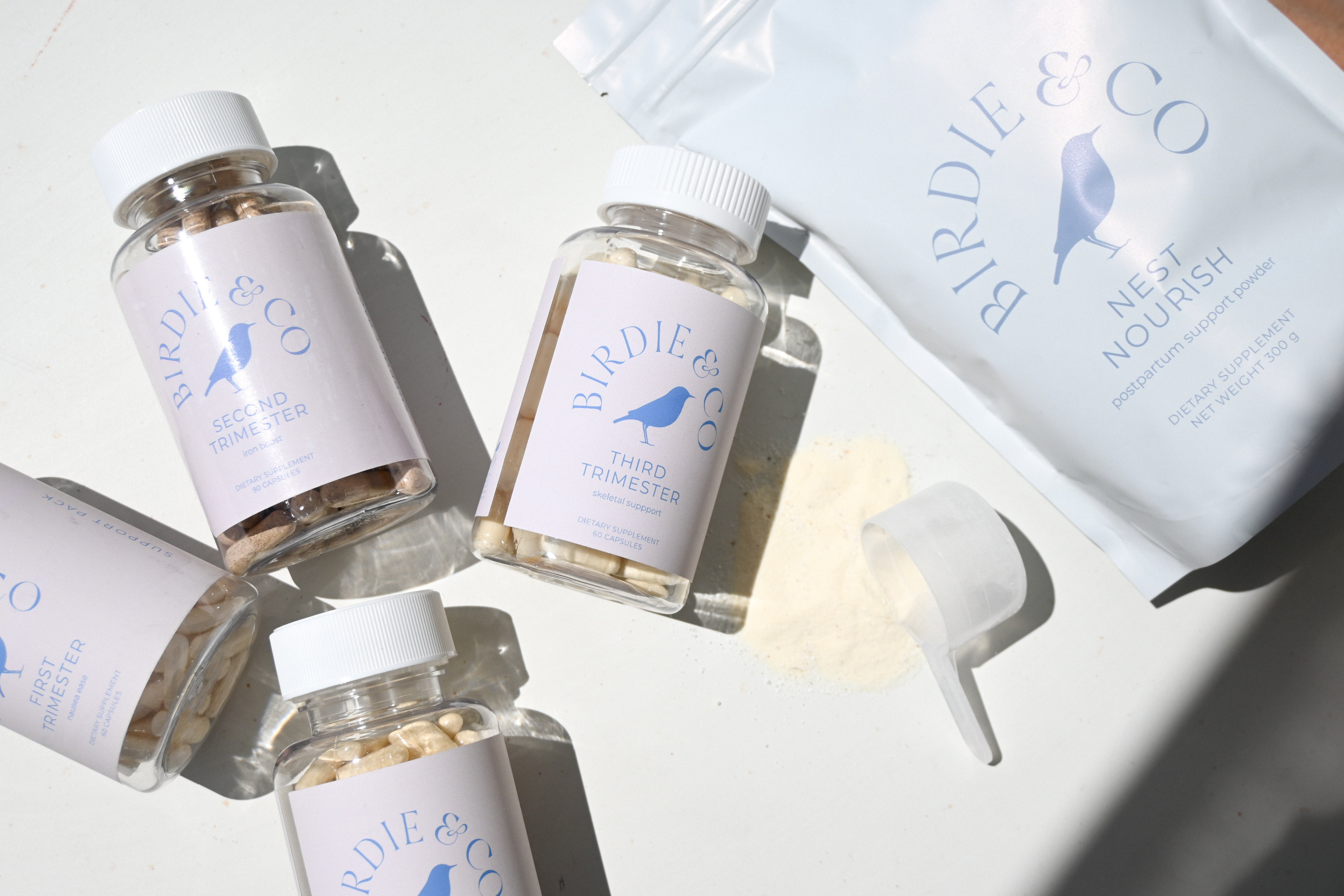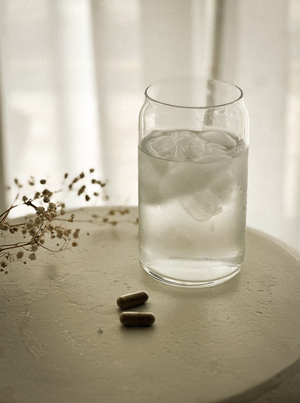Calcium is one of the most vital minerals in the body—and it plays a far bigger role in pregnancy than most people realize. Beyond supporting strong bones and teeth, calcium is essential for muscle contraction, nerve signaling, and heart function. It’s no surprise that calcium is the most abundant mineral in the human body. And yet, nearly 40% of people in the U.S. are still not getting enough of it.
Almost half of all pregnant women in the U.S. are already starting out with low calcium levels. And calcium levels tend to drop even further during pregnancy, putting many women at risk for complications that range from inconvenient (like leg cramps that wake you up in the middle of the night) to life-threatening (like pre-eclampsia, which we’ll get into shortly).
Why Calcium Is So Critical During Pregnancy
When we think of calcium, we typically think of bones. And for good reason—during pregnancy, your baby starts developing their skeletal system as early as 8 weeks. Since your baby can’t make their own calcium, they rely entirely on you to supply it.
Your body is incredibly smart and will always prioritize your baby’s needs. If your calcium intake isn’t high enough, your body will start pulling calcium from your bones to ensure your baby gets what they need. While that might sound generous, it can leave you depleted—and over time, that deficiency can snowball into health problems, both during and after pregnancy.
Even more concerning, there’s a strong link between calcium deficiency and pregnancy complications like gestational hypertension and pre-eclampsia.
The Link Between Calcium and Pregnancy Complications
Gestational hypertension is when high blood pressure develops during pregnancy, usually after 20 weeks. Pre-eclampsia is a more severe condition marked by dangerously high blood pressure and protein in the urine—and it can become life-threatening for both mother and baby if left untreated.
The numbers speak for themselves:
-
10–20% of pregnancies in the U.S. are affected by gestational hypertension
-
2–8% develop pre-eclampsia
-
Pre-eclampsia has increased by 25% over the last two decades in the U.S.
Research continues to support the connection between low calcium intake and the risk of these conditions. Yet, it’s still not standard practice to prioritize calcium intake as part of prenatal care.
So, How Much Calcium Do You Actually Need?
The recommended dietary allowance (RDA) for calcium during pregnancy is 1,000–1,300 mg per day. For perspective, a single cup of milk only has about 300 mg. So unless you’re very intentional with your food and supplement choices, hitting that target can be a challenge—especially with all the cravings and aversions pregnancy brings.
It’s also worth noting that 80% of calcium transfer to the baby happens in the third trimester, when bone development is at its peak. That’s why your calcium needs increase significantly toward the end of pregnancy—and why supplementation can make such a big difference.
Meeting Your Needs: Food, Supplements, and Support
Ideally, you’d get calcium from whole foods like dairy, leafy greens, tofu, fortified plant milks, and seeds. But realistically, that’s not always enough—especially if you’re dealing with nausea, food aversions, or dietary restrictions.
That’s why we created our Third Trimester Support Pack, Skeletal Support. It delivers 800 mg of high-quality calcium, formulated specifically to meet the increased demands of late pregnancy. It’s not just about baby’s bones—it’s about protecting you, too.
The Bottom Line?
Calcium isn’t just about building bones—it’s about protecting your heart, muscles, and overall well-being during one of the most important times of your life. If nearly half of all pregnant women are deficient in calcium, and we know that this mineral plays a key role in preventing complications like pre-eclampsia, it’s time we start taking it seriously.
Don’t wait for symptoms to show up. Prioritize calcium from day one, and adjust as your pregnancy progresses—especially in the third trimester, when your body needs it most.
Because when you nourish yourself, you’re nourishing two.


